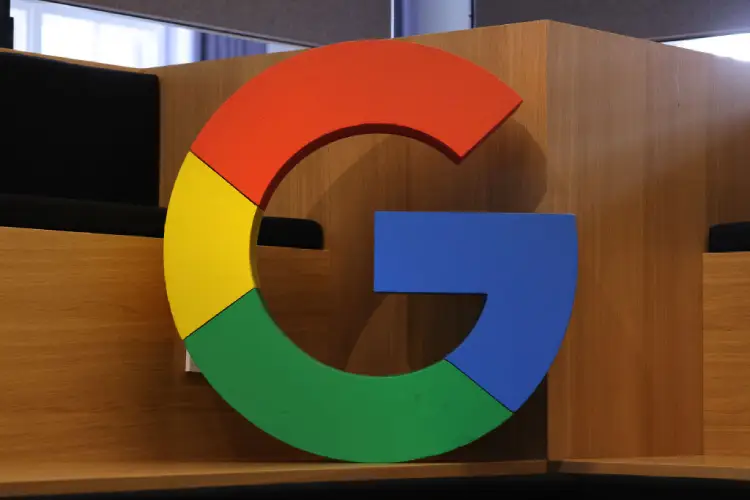
Google has abandoned plans to offer bank accounts to its users. Originally announced two years ago, the Google Plex account promised a simplified mobile banking experience, but has now been shelved. Big Tech has long been touted as a competitive threat to established banks, but Google and its rivals have had limited success so far, with many projects stalling in the face of commercial and regulatory challenges.

Working in partnership with financial institutions including Citi Group and the Stanford Federal Credit Union, Google touted Plex as a way to make banking “more relevant for the mobile-first generation”, with integration with Google Pay, the company’s payment app, and a dashboard to manage transactions and set budgets. But after a series of missed deadlines and the departure of sponsoring executive Caesar Sengupta, who left Google earlier this year to start his own fintech company, Plex has bitten the dust.
The news will come as a disappointment to some 10,000 customers who had already registered an interest in opening a Plex account. Google plans to focus on “delivering digital enablement for banks and other financial services providers rather than serving as the provider of these services,” a spokesman told the Wall Street Journal.
Was the demise of Google Plex a surprise?
Plex is not the first financial services product Google has cancelled at an early stage, says Benjamin Ensor, research director at fintech consultancy 11:FS. “Google has a record of changing tack,” he says. “They did it with Google Comparison, a comparison site they set up in 2015 and closed down in 2016. There were two reasons for this, and I expect similar reasons apply to Plex.”
Firstly, Ensor says, competing with financial services companies could impact other business lines, such as advertising and cloud computing, which count banks as customers. “Google has to be careful about doing anything that will alienate major advertisers or cloud customers, and financial companies are a big chunk of this revenue, in Europe, the US and elsewhere,” he says. “They may have decided the revenue they stood to gain by offering bank accounts was less than that they risked losing from irritated customers.”
Secondly, concerns about antitrust lawsuits may have also played a role in Plex’s demise, Ensor says. Google and other Big Tech companies have been repeatedly targeted by regulators in areas where they are seen to have a monopoly, or unfairly promote their own products. “It wouldn’t be a surprise if a couple of Google executives looked at Plex, looked at the antitrust situation elsewhere, and thought, ‘we know how this movie ends’,” Ensor adds.
Has Big Tech bitten off more than it can chew in banking?
Other Big Tech companies have made forays into financial services, with varying degrees of success. Uber launched Uber Money in 2019 and announced plans for a digital wallet, but this project was scaled back last year as the company refocused on its core ride-hailing and food delivery businesses. Amazon, meanwhile, has reportedly been working on its own bank accounts since 2018, but these have yet to materialise. Facebook meanwhile had planned to launch its own digital currency, Libra, but this had to be rebranded and restructured in the face of criticism from central banks. It is now known as Diem and operates as an independent entity from Facebook.
With demand for digital banking services increasing, though, the opportunity for tech companies to get more involved in the sector remains substantial. In the US more than 80% of the population, some 216 million people, are expected to be using digital banking by 2025
Theodora Lau, co-founder of the Unconventional Ventures consultancy, says the relationship between Big Tech and finance tends to be “region-specific”, and that companies in the West may struggle to integrate themselves in the financial services sector in the same way their Chinese counterparts Alibaba and Tencent have with Alipay and WeChat Pay respectively.
“In the US the banking industry is more established, and you can see the approach differ amongst the tech giants,” she says.
Instead of banks viewing Big Tech as a threat, Lau believes there is an opportunity for greater co-operation. “In many ways, they actually need each other,” she says. “Banks need to adopt cloud and AI, and Big Tech companies want to sell these services to the big banks. Perhaps this will be a chance for the financial services industry to finally be able to leverage the data that they have, and create new products and services for consumers that are purposeful and useful.”
One company that has successfully forged such a partnership is Apple, which launched the Apple Card credit card in 2019 in partnership with Goldman Sachs. Two years on it reportedly boasts 6.4m cardholders. 11:FS’s Ensor says Apple Card’s success shows that the differing business models of Big Tech companies will dictate their approach to financial services. “Big Tech companies are not all the same,” he says. “Apple generates most of its revenue from the app store and from selling its devices, so it has fewer reservations about competing head-on with banks than an Amazon or a Google.”
Ensor adds that the plethora of opportunities presented to Big Tech companies could be one of the reasons their progress in financial services has been slower than many expected. “They’re playing in all sorts of areas from health to home to automotive,” he says. “Financial services is just one of the strategic options for them, and it is hard work. So I think if they start running into obstacles, be those regulatory or in terms of competition, it’s no surprise that other opportunities begin to look more interesting and attract more investment.”






